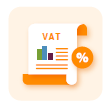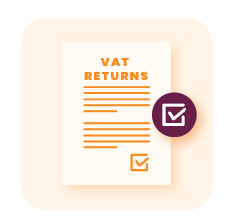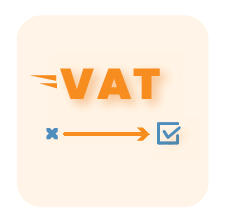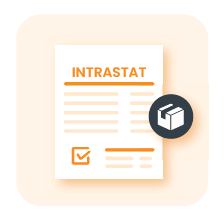Reverse Charge & “Call Off Stock” in Ireland
Section 12 of the Irish VAT Act stipulates that if a supplier, who is not based in Ireland, provides services to an Irish establishment and the place of supply of these services is in Ireland, the recipient is required to account for Irish VAT on the supply using the reverse charge mechanism.
This obligation also applies if the service user does not have a presence in Ireland but has a fixed establishment that receives services from a non-resident supplier.
Read all about reverse charge and Call Off Stock in Ireland in our comprehensive guide below.
Selling in Ireland?
Ireland – Consignment & “Call off stock”
Simplifying the EU’s call-off stock regime
On or after January 1, 2020, one of the Quick Fixes provided by Article 17a of the EU VAT Directive, which is incorporated into Irish legislation under Section 23A of the Irish VAT Act, harmonizes call-off stock arrangements throughout EU Member States.
If a supplier moves goods to a warehouse in another EU Member State with the aim of making a later supply to a specific buyer, the following regulations apply. The transfer of goods to the warehouse is not viewed as a taxable transaction due to the simplification rule. The taxable transaction occurs when the ownership of the goods is transferred to the purchaser.
The taxable transaction is handled as a zero-rated intra-Community supply of goods from the supplier to the buyer, as well as an intra-Community acquisition by the buyer in the Member State where the goods are acquired. As a result, the supplier is not required to register for VAT in the Member State where the goods are delivered.
If this criteria applies, use of the call-off stock simplification scheme is required:
- A taxable person, or a third party acting on his or her behalf, must dispatch or transport goods to another Member State with the intention of supplying those items to another taxable person, who is authorized to assume ownership under an existing agreement between the counterparties.
- The taxable person dispatching or carrying the goods, must not have a fixed establishment in the Member State to which the items are delivered or conveyed.
- The taxable person to whom the goods are to be delivered must be identified for VAT purposes in the Member State to which the goods are dispatched or transported, and the taxable person dispatching the goods, must know both his or her identity and the VAT identification number assigned to him or her by that Member State at the time the dispatch or transportation begins.
- The taxable person who dispatches or transports the commodities must keep track of the transfer in a register.
- The products must be delivered to the designated recipient within 12 months of their arrival at the consignment location. If this criterion is not met, the commodities are normally considered transferred on the day after the 12-month period has expired.
The taxable persons must permit the tax authorities to verify the correct application of the call-off stock simplification. The taxable person must also disclose in the VIES Statement, the identity of the taxable person acquiring the goods and the VAT identification number assigned to the latter by the Member State to which the goods are dispatched or transported.
Last Updated: 06/10/2023
Disclaimer
The information provided by Global VAT Compliance B.V. on this webpage is intended for general informational purposes only. Global VAT Compliance B.V. is not responsible for the accuracy of the information on these pages, and cannot be held liable for claims or losses deriving from the use of this information. If you wish to receive VAT related information please contact our experts at support@gvc.tax
Import VAT in Ireland
According to Section 2 of the VAT Act, “importation of goods” is defined as the act of bringing goods into the EU from outside the EU. In contrast, the term “intra-Community acquisitions” is used for goods that are transported into Ireland from other EU member states. Goods can be imported directly from outside the EU or indirectly through one or more other Member States, as long as they were not subject to VAT in those Member States and were under a customs suspension regime in another EU Member State before being transported to Ireland.
Liability for Import VAT
Even if the importer of record is an unregistered person, the importer of record is normally liable for import VAT. This is in contrast to the regulation that applies to intra-Irish supplies of goods and services, which are generally only taxable when made by taxable individuals, subject to the registration threshold being surpassed.
Import VAT can be recovered in the usual way through an Irish VAT return, provided the importer is an accountable person and meets the general input VAT recovery conditions.
Deferral of the Irish import VAT
The typical practice when goods are imported into Ireland from outside the EU is that the designated importer must remit VAT at the point when the goods cross customs and enter free circulation. Nevertheless, the importer may take advantage of the postponed accounting scheme, which allows them to report the VAT due on goods imported from outside the EU on or after January 1, 2021, on their VAT return for the relevant accounting period and to pay the VAT by the deadline for that return, as stipulated in Section 53A of the VAT Act.
A taxpayer must meet the following requirements in order to use the postponed accounting system:
- Comply with all applicable VAT and other tax obligations.
- Maintain detailed records of all transactions.
- Must not have been convicted of any tax-related offences.
- Provide necessary information when the Irish Revenue Authority requires.
Accountable persons who were registered for both VAT and Customs & Excise at the end of the Brexit transition period are eligible for Postponed Accounting automatically. VAT registered traders, who were not registered for C&E at the time, must register for C&E in order to import goods into Ireland, after which they will be granted automatic Postponed Accounting. Unless they are intra-EU VAT applicants with an active C&E registration, new VAT applicants are normally needed to submit a postponed accounting application or request, either online or electronically.
Import VAT postponed accounting was not possible prior to January 1, 2021. However, certain traders can use an alternate deferred payment mechanism before and after January 1, 2021. Strict requirements apply, including the furnishing of a bank guarantee. The dealer can postpone payment of import VAT until the 15th day of the month following the month in which the VAT is due under the plan. An Economic Operator Registration and Identification (EORI) number is required for importers who use postponed accounting or the alternative deferred payment system.








